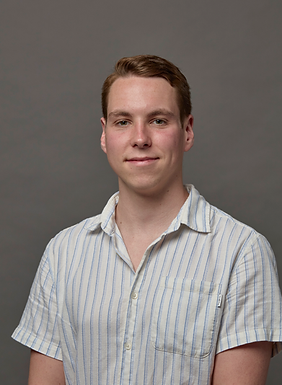Brent van Herk
About Me


“I develop the methods we’ll need to design the next generation of healthcare innovation.”
Vision
As a healthcare design researcher, I am driven to address complex medical challenges. My interactions with healthcare providers, patients, and (biomedical) engineers reveal a need for solutions that not only improve patient experiences and outcomes but also streamline workflows and reduce the strain on the healthcare system.
To make an impact, I believe we must understand the entire care pathway and clinical workflow from a systems perspective. Designing isolated point solutions often leads to missed opportunities or even unintended consequences. By grounding our design in systemic frameworks and incorporating ISO standards, we ensure interventions are effective and sustainable.
We should focus on well-researched, evidence-based approaches. Research through Design (RtD) can be used not only to generate outcomes, but also to develop new ways of designing. Prototypes are more than artefacts. They are tools for exploration and reflection. They help reveal needs, test assumptions and communicate new ideas across disciplines.
Artificial Intelligence (AI) should not only be used in the solutions we design, but also actively support the design process itself. This includes AI-enabled simulation, data-informed iteration, and decision support for designers.
As the healthcare landscape changes, I believe we should also change our design processes. My ambition is not only to design healthcare tools, but to develop design methodologies that can help shape how these tools are created.
Professional Identity
I work at the intersection of engineering, healthcare and design. I’m passionate about addressing complex challenges in clinical environments by creating solutions that are not only functional but also embedded in the workflows and realities of healthcare practice. I involve users throughout the design process, ensuring their perspectives shape outcomes from the beginning. This participatory, research-driven mindset supports both outcomes and methodological development.
I thrive in high-energy, interdisciplinary environments where momentum and collaboration are valued. That said, I also know my ambition can sometimes lead me to push too fast, especially in sensitive or highly regulated settings. I’ve learned to balance that drive with strategic planning, listening and a careful understanding of system constraints.
I’m also aware that while I design both with and for AI, I’m not a programmer or data scientist. I see this not as a limitation, but as a learning opportunity. My upcoming PhD on AI-empowered physical-digital twins strengthens my technical fluency to better collaborate with experts and responsibly integrate AI in design.
At the core of my identity is a commitment to RtD. I use prototypes not just to deliver solutions, but to explore, question, and refine the way we design for healthcare. My focus is on creating reproducible, evidence-informed design methodologies. This mindset shapes my work today and sets the foundation for my academic journey.
In the long term, I see myself continuing to contribute to the field through academic research and methodological development. Developing not only tools for healthcare but also the frameworks and methodologies that make such tools possible.